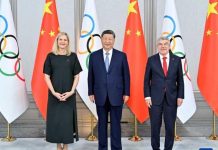Africa-Press – Zimbabwe. FINANCE, Economic Development and Investment Promotion deputy minister David Mnangagwa says Treasury’s rollout of the electronic Government Procurement (eGP) system aims to enhance transparency in public procurement, as billions in taxpayer funds are channelled through the process.
Over the past few months, Treasury has increased its rollout of the eGP system, a secure web-based application managed by the Procurement Regulatory Authority of Zimbabwe (Praz).
It enables all public entities and bidders to conduct procurement activities electronically, thus enhancing competition, transparency, efficiency and integrity in public procurement in Zimbabwe.
The eGP System also facilitates faster decision-making by Praz and reduces costs related to procurement processes.
It comes as Praz revealed in March that the country spent a staggering US$19 billion on procurement between 2019 and 2024, highlighting the government’s massive expenditure bill.
This expenditure amounts to an average of US$3,8 billion being spent annually on procurement processes.
For years, the Bretton Woods institutions, the African Development Bank and the Auditor-General’s Office noted that the most prevalent loss of government revenue is through procurement processes.
“As the deputy minister of Finance, Economic Development and Investment Promotion, I come from the ministry that holds the public purse,” Mnangagwa said during the ongoing four-day 5th General Assembly of the African Public Procurement Network (AAPN) that began on Tuesday in Victoria Falls.
“We are the custodians of the taxpayer’s money, and we have a sacred duty to ensure that every dollar is spent efficiently, transparently and for the maximum benefit of our citizens.”
APPN is an association that brings together public procurement entities in 46 African countries.
It was created in 2018 in Lomé, Togo, where it is headquartered.
APPN’s main aim is to promote development and regional integration through member States with a view to improving public procurement processes.
Hence, the general assembly is being hosted by Praz.
Mnangagwa said owing to the huge volume of public funds going through procurement processes, Treasury made a strategic and decisive investment into enhancing the system.
“We did not just theorise about innovation; we funded it. We resourced the implementation of the electronic Government Procurement system,” he told delegates.
“It was a fundamental re-engineering of our procurement landscape with an agenda to drive transparency, leaving no room for the dark corners where corruption and inefficiency can thrive.”
Mnangagwa stated that to enhance efficiency, it means public projects start sooner and services are delivered faster to better achieve “value for money”.
“A small-to-medium enterprise in Binga or Beitbridge can now compete for a national tender on an equal footing with a firm in Harare, provided they meet the requirements,” he said.
He added that technological adoption was Treasury’s practical answer to the call for innovation, adding that it was the digital backbone that supported the other pillars.
“It is the platform that enables sustainability by allowing us to integrate green criteria into our evaluations,” Mnangagwa said.
“Such tools make regional collaboration easier, as digital systems can talk to each other across borders, paving the way for the harmonisation we seek under the AfCFTA [African Continental Free Trade Area].”
He told delegates that they needed to have political will.
“Our Treasury’s funding of the eGP system, the establishment of Praz, and the launch of the Southern Africa Public Procurement Training Academy are all manifestations of this unwavering political will.
“We are building the systems and the skills to match. I encourage you to be both practical and ambitious.”
Zimbabwe is the current APPN chairman and has the presidency.
For More News And Analysis About Zimbabwe Follow Africa-Press






